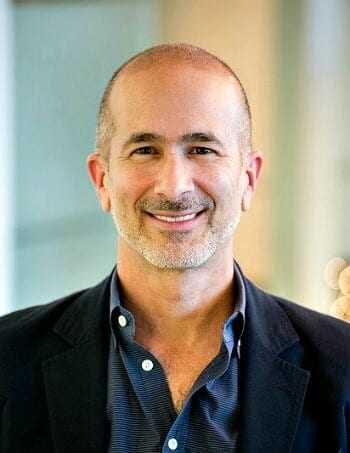The North American Olive Oil Association has named Joseph R. Profaci as executive director of the trade group of prominent American olive oil importers. Eryn Balch previously held the position.
It is clear that the ‘fake news’ epidemic in the United States is not limited to those seeking to gain political advantages.
“I am very proud to be leading the NAOOA. This role is the culmination of my 25 years in this business, and I feel well prepared to tackle the biggest issue the industry is facing, which we believe is consumer confidence and trust,” Profaci told Olive Oil Times.
Joseph R. Profaci is a Harvard and New York University-educated attorney who has served as the general counsel for Colavita USA, the company based in New Jersey founded by his father, John J. Profaci, who began a partnership with Enrico Colavita in 1980 to distribute the brand in the U.S.

Joseph R. Profaci
Profaci’s family history in the olive oil business goes back to another era: His grandfather, Joseph Profaci, was the founder of one of New York’s “five crime families” known as the Colombos and the inspiration for Marlon Brando’s character in “The Godfather.” He was once the country’s most notorious racketeer, known as the “Olive Oil King” and “Don Peppino.”
In 2010, John J. Profaci’s son, John Profaci Jr. told the New York Post about the family’s evolution to ‘legitimate’ businesses: “We’ve gone so far, our family has, since those days. We all went to good colleges and got good educations. We are businessmen … That’s so far removed from our past.”
“My grandfather died in 1962, when I was two years old,” Joseph R. Profaci told Olive Oil Times. “Sixteen years later, in 1978, my dad, John J. Profaci, was working as a food broker when he had the good fortune of being introduced to Enrico Colavita who was traveling in New York on his honeymoon. Suddenly, my dad was in the olive oil business, and he, too, faced the same questions – and not a few undeserved comments about the past.”
“We’re proud of the respect that we’ve worked for and won, and I would hope to be judged on my own merits rather than outdated and disconnected stereotypes,” he added.
Profaci, who started yesterday in his new role, leads a trade group that has taken an increasingly offensive stance against what it sees as inaccurate statements that have damaged the reputation of imported olive oils.
“At this point last year, the olive oil association was reeling from the recent report of olive oil fraud on CBS’s 60 Minutes,” Profaci wrote recently in the Association of Food Industries (AFI) annual report. “As a result our members challenged the association to devise a strategic plan both to respond to continued attacks against imported olive oil, and to redouble our efforts to promote positive news about the category.“
See Also:60 Minutes Looks at Olive Oil Adulteration in Italy
In November 2016, the group sued television’s ‘Dr. Oz’ for claiming during a show that aired in May 2016 that 80 percent of the extra virgin olive oil sold in U. S. supermarkets isn’t “real.” That suit was dismissed last March.
“The association was disappointed in and disagreed with the judge’s dismissal,” Profaci said today. “But after the NAOOA filed a notice of appeal, the parties reached an amicable settlement. Dr. Oz is committed to our cause of protecting consumers from fraud — including deceptive misinformation — and we are grateful for that.”
In December last year, the group filed a lawsuit against the California-based specialty store distributor Veronica Foods for “false, misleading and scientifically unsubstantiated statements about olive oil sold in supermarkets, claiming it lacks the health benefits consumers expect.” That case is ongoing and Profaci declined to comment on the proceedings.
Profaci described the association’s key issues in his report to the AFI: “There are three main branches in our olive oil strategy: defend against attacks; science and standards; and communications. It is clear that the ‘fake news’ epidemic in the United States is not limited to those seeking to gain political advantages.”
“The good thing is that people are truly passionate about olive oil,” he noted. “The challenge is making sure that they are well enough informed to know if they are being misled, whether it be in a clickbait fake news posting on Facebook or on a product label.”
The group has engaged in lobbying initiatives on issues such as Farm Bill legislation and quality testing programs. “The NAOOA began working closely with Washington D.C. consultants to help us educate lawmakers about the current state of affairs. As a result of those efforts, the draft Senate Agricultural Committee appropriations report included language that the FDA should conduct testing of all products (and not just imports),” Profaci wrote.
The protectionist discourse of the Trump administration has also served as a call to action for the trade group, according to Profaci, who said, “We must remain vigilant of obstacles that might be erected in light of anti-trade rhetoric of the 2016 presidential campaign, both in terms of import regulations and tax policy.”
Profaci served as the NAOOA chair until June 2017, according to a press statement provided to Olive Oil Times. Media were invited to contact Greg Drescher at the Culinary Institute of America (CIA) as a reference on Profaci.
In 1991, Colavita USA donated $2 million to the Culinary Institute in exchange for the naming rights to a new campus building, the Colavita Center for Italian Food and Wine. In 2010, John J. Profaci was inducted into the CIA Hall of Fame.








